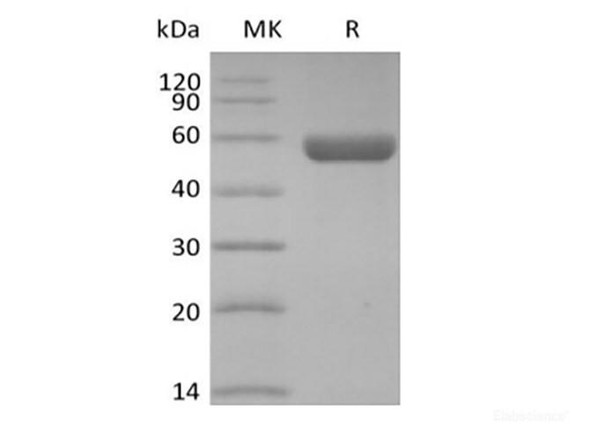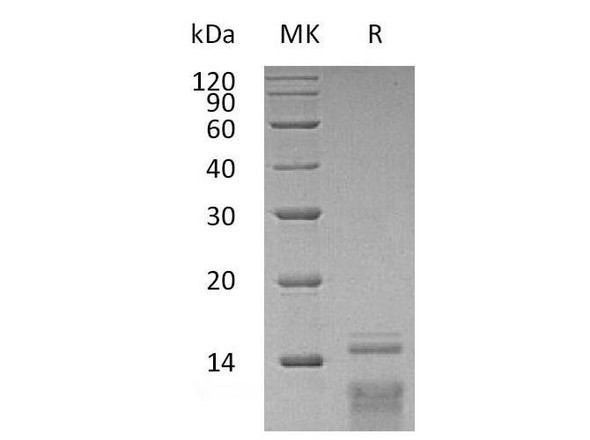| Sequence: | Tyr29-Gln159 |
| Accession: | Q969D9 |
| Storage: | Generally, lyophilized proteins are stable for up to 12 months when stored at -20 to -80°C. Reconstituted protein solution can be stored at 4-8°C for 2-7 days. Aliquots of reconstituted samples are stable at < -20°C for 3 months. |
| Shipping: | This product is provided as lyophilized powder which is shipped with ice packs. |
| Formulation: | Lyophilized from a 0.2 μm filtered solution of PBS, pH 7.4. Normally 5 % - 8 % trehalose, mannitol and 0.01% Tween80 are added as protectants before lyophilization. Please refer to the specific buffer information in the printed manual. |
| Reconstitution: | Please refer to the printed manual for detailed information. |
| Background: | Thymic stromal lymphopoietin (TSLP) is a novel member of the hemopoietic cytokine family that promotes the development of B cells and shares overlapping activity with IL-7. The human TSLP protein comprises a 28 amino acids (aa) signal sequence and 131 aa mature region. Human TSLP has two isoforms lfTSLP and sfTSLP produced by alternative splicing . lfTSLP is expressed in a number of tissues including heart, liver and prostate, and sfTSLP (63aa) is predominantly expressed in keratinocytes of oral mucosa, skin and in salivary glands. In aa sequence level, Human TSLP displays about 43% identity with mouse TSLP.TSLP is a cytokine that functions mainly on myeloid cells; it induces the release of T cell-attracting chemokines from monocytes and enhances the maturation of CD11c(+) dendritic cells.TSLP has proliferative effects on the myeloid cell line and may initiate asthma or atopic dermatitis responses by directly activating mast cells . TSLP signals cells via the interleukin-7 receptor-α chain (IL-7Rα),shared with IL-7, together with the TSLP receptor (TSLPR) subunit. Recent studies indicate that TSLP and its receptor are novel therapeutic targets for rheumatoid arthritis,for increased intraarticular TSLP concentrations in patients has caused chemotaxis and activation of arthritogenic T cells. |






